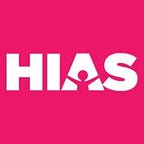by Beverly Goldberg
When Claudia Gomez and Isabela Ruiz* left their native Venezuela four years ago, they knew they would miss living close to the sea and being surrounded by nature. So it was a pleasant surprise for them when they discovered that their new home — Manta, Ecuador — was a small city by the coast. Now, when they hear the waves crashing against the rocks, the only difference is that it’s the vast Pacific Ocean, rather than the Caribbean Sea.
Gomez and Ruiz met eight years ago in Aragua, Venezuela, and it was love at first sight. Shortly after their first encounter, Ruiz became ill and Gomez won her over by sending her homemade, herbal remedies that would help nurse her back to health. However, as a gay couple, it wasn’t easy for them to express their true selves freely. “Family discrimination against the LGBTQ community in Latin America is really strong,” Gomez said. “When we first told people about our relationship, many tried to separate us and stop us from being together.”
In spite of the difficulties they had to face, they knew that they wanted to build a life together in Aragua. The two opened up a small business selling tools and building materials in order to earn a living while Gomez finished her degree in psychology. However, when their economic situation became complicated, they were forced to close their business and had no way to pay their monthly bills. That was when they decided to pack their bags for Ecuador.
Soon after arriving in their new home, Gomez and Ruiz faced challenges familiar to refugees in the region, including economic insecurity and the trauma associated with fleeing one’s country. “HIAS Ecuador helped us with a lot of things. I received financial support to complete a training course, and Claudia received psychological help,” said Ruiz. So when the opportunity later arose to participate in the Entrepreneurship School with a Gender Lens, an initiative launched under HIAS’ Economic Inclusion program, they jumped at the chance.
Four years later, Gomez and Ruiz feel at home in Manta. Support from HIAS Ecuador helped them start a business selling healthy, vegan snacks and providing catering services.
“When we started the entrepreneurship school, we’d already been cooking and selling snacks such as empanadas on the street. During the course, we discovered that making vegan snacks was something we could explore as a serious business idea,” they said.
An Entrepreneurship School with a Different Approach
The Entrepreneurship School with a Gender Lens supports LGBTQ community members, survivors of gender-based violence (GBV), and women at risk to achieve both economic and emotional empowerment through psychological support and skills training. So far, HIAS has carried out the program in Colombia, Costa Rica, Ecuador, Guyana, Panama, and Peru.
“In the first session, participants learn about the importance of self-esteem and techniques for improving their self-worth with the Mental Health and Psychosocial Support team. Then, we start learning about business skills, but we focus mainly on supporting participants to come up with a business plan based on capacities they already have,” said Karen Cordova, the senior economic inclusion coordinator for HIAS Ecuador. Participants are then encouraged to understand the demands of the current market, and how they can adapt their capacities to meet those demands.
Program materials have been designed with diversity in mind, using inclusive language, terminology, and case studies that LGBTQ participants will relate to. The HIAS Ecuador team also works to create an environment where LGBTQ community members feel safe from the first moment they arrive at the office.
“HIAS Ecuador has almost 20 years of experience supporting the LGBTQ community, through providing legal advice, psychological services, emergency funds, support for GBV survivors, and economic inclusion programs,” said Joseph Mejía, the GBV coordinator for HIAS Ecuador. This extensive experience helps to guarantee that participants are welcomed in a space that promotes inclusion and combats discrimination.
After completing the skills training elements of the course, participants are eligible to receive seed capital to help them initiate their business idea. For Gomez and Ruiz, this was crucial for helping them launch their business. “With the seed capital, we bought the materials we needed to start making our vegan cupcakes and our granola. We also bought a blender, cooking utensils, and a food processor,” Gomez said.
Gomez and Ruiz light up when they talk about their plans for the future. Their business is growing and a wedding is on the horizon. They also plan on buying some land close to Manta, where they’d like to build a house for themselves and their family of adopted pets from Venezuela and Ecuador.
“We started our business in the program, and now we’re suppliers of organizations like UNHCR and Plan International. Our snacks are selling really well,” they told us. “We want to inspire other people that they can follow their dreams and open up their own business too.”
*Names have been changed to protect the identities of program participants
Originally published at https://hias.org on September 1, 2023.
